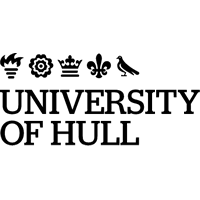
About the course
Course content
Modern devices often rely on data that is distributed across multiple computers, whether closely located or more distant. Developing software for such systems offers many benefits, but it also poses new challenges to be overcome, particularly in guaranteeing the security and robustness of the communication between devices.
The MSc at Hull is designed to enable you to overcome those challenges. It prepares you to exploit the extraordinary potential of distributed systems, both in terms of storage capacity and processing power, whilst being aware of the unique constraints and security problems they introduce. You will have access to cutting-edge equipment and facilities, and you will finish with a much greater understanding of how software development needs to adapt to the unique environment of a distributed system. These skills and knowledge are highly sought-after in an industry that is increasingly adopting new distributed technology, such as cloud-based solutions.
The course begins in September each year and lasts twelve months. There are two trimesters of taught modules, followed by an individual dissertation project during the third trimester. There is an option to take an extra trimester – immediately before the dissertation, adding an extra three months of study but letting you gain insights into industry through a module based on commercial practice, typically working with commercial clients and software.
Studying Computer Science at Hull, you'll benefit from an excellent experience for students, with a supportive student community. We have an international reputation for our research activities, with a strong record of industrial and public grant funding. We are also affiliated with Microsoft’s DreamSpark programme, which allows you to access the latest Microsoft operating systems and development software for home use. Once registered with the department, you can download the software free of charge.
Study information
The MSc Computer Science (Security and Distributed Computing) programme supports students with various levels of computing and programming practice experience, with material that supports the transition into the postgraduate environment. There is also suitable content on professional skills and the importance of ethics for practising computer scientists.
As a route into research, the programme supports the development of postgraduate technical skills, alongside critical research, analysis and planning activities.
In lectures you’ll benefit from a range of techniques, from interpreting complex ideas through interactive discussions, to live programming or other problem-solving demonstrations.
Core modules
- Object Oriented Design and Development Using C#
- Component-based Architecture
- Network Security
- Development Project
- Distributed Applications
- Trustworthy Computing
Optional modules
- Computer Science Software Development Practice (pass/fail module)
- The Industrial Experience optional 60-credit single trimester module extends the MSc to a 4-trimester length degree, enabling you to gain meaningful commercial experience
Dissertation
- Up to 20,000 words. There is the option of taking this in either trimester 3 or trimester 4, depending on whether you take the Industrial Experience module
Teaching and learning
We place a strong emphasis on practical laboratory sessions. This will significantly develop your core computer science skills, and enhance your employability through exposure to commercial projects.
As teamwork plays a key role in commercial software development and has great value as an employable skill, group work is used in a number of modules.
Assessment
Practical coursework is the main form of assessment, and you will design, build and test software solutions to a variety of problems. This is complemented by written coursework. The largest assessment is the dissertation.
* All modules are subject to availability.
Future prospects
The MSc Computer Science (Security and Distributed Computing) is designed to open up pathways to postgraduate research, as well as careers in a wide range of areas within your discipline. The industrial placement option will enable you to practise your skills and knowledge of computer science ‘in situ’, giving you a useful insight and advantage when it comes to starting your career.
We have a range of inspirational extra-curricular activities including the Three Thing Game, Imagine Cup Worldwide Software Development Challenge, Really Useful Seminars and Global Game Jam. They are designed to boost your CV and employability, and taking part costs very little.
Our graduates typically gain roles including: Applications Developer, Business Systems Analyst, Computer Analyst, Computer Programmer, Computer Operations Manager, Data Management Analyst, Database Assistant, Developer Support Engineer, Games Programmer, Games Programmer (Engine design), Information Manager, IT Design, IT Systems Manager, IT Technician, IT user Support, Mobile Developer, Operations Director, Software Designer, Software Developer, Software Engineer, Solutions Developer, Systems Engineer, Technical Sales, Technical Specialist, Web Developer.